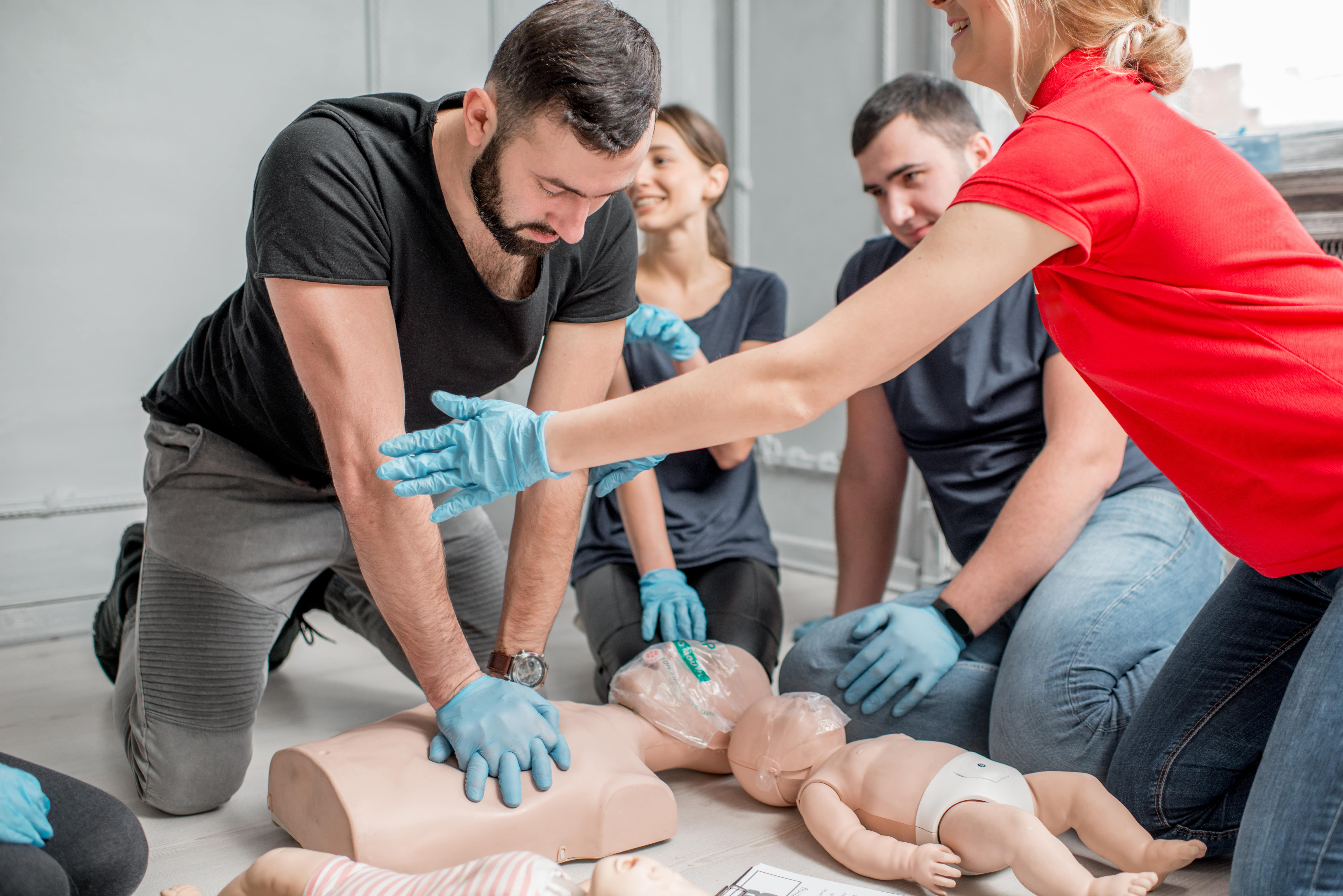Introduction
In today's busy workplace, safety and security is paramount. Organizations are progressively recognizing the relevance of producing a secure room for employees. One of one of the most crucial elements of work environment safety training is first aid and CPR (Cardiopulmonary Resuscitation) courses. These programs not just empower workers with vital life-saving skills but also cultivate a culture of safety within the organization. In this article, we will certainly delve into the myriad reasons why office safety and security training need to include first aid and CPR training courses, underscoring their relevance in enhancing work environment safety.

Why Office Safety and security Training Must Include First Aid and CPR Courses
The combination of first aid and CPR programs right into workplace safety and security training has far-reaching benefits. They outfit staff members with the knowledge and abilities essential to react successfully to clinical emergency situations, decrease healing time for injured people, and potentially save lives. Moreover, having trained workers on-site can impart self-confidence among staff members and comfort them that their health is prioritized.
Understanding Very first Aid
First help refers to the immediate treatment Sydney CBD First Aid Course Near Me given to a specific suffering from a minor or significant illness or injury until expert medical assistance shows up. Understanding basic first aid concepts can make a significant difference in emergency situations.

Key Elements of First Aid
Assessment: The capability to examine a scenario rapidly can help establish the ideal activities needed. Stabilization: Recognizing just how to maintain a hurt individual stops further harm. Communication: Properly communicating with emergency solutions is essential for timely assistance.The Importance of CPR
CPR is a life-saving method utilized in emergency situations when somebody's heartbeat or breathing has quit. It involves breast compressions and rescue breaths to maintain blood flow and oxygenation till expert assistance arrives.
How CPR Works
- Chest Compressions: These aid circulate blood throughout the body. Rescue Breaths: These provide oxygen to the lungs.
Benefits of Emergency treatment and CPR Certification
Obtaining an emergency treatment certificate or completing CPR courses includes countless advantages, both for individuals and organizations.
Enhanced Staff member Confidence: Staff members really feel much more protected knowing they possess life-saving skills. Reduced Recuperation Time: Quick feedback through emergency treatment can cause much better end results for damaged individuals. Compliance with Regulations: Many industries need certified personnel as component of their health and safety regulations.Creating a Society of Safety And Security Through Training
Implementing first aid and CPR training cultivates a culture that focuses on employee wellness.
Encouraging Teamwork
Training sessions typically entail team-building exercises that boost collaboration among employees.
Building Trust fund Between Workers and Management
When administration buys staff member training, it reveals dedication to their health and wellness, resulting in boosted morale.
First Aid Surges vs. CPR Courses: What's the Difference?
While both sorts of training courses are necessary, they focus on different ability sets.
First Aid Courses
These programs cover a vast array of subjects past just heart emergency situations, consisting of:

- Wound care Burns Choking
CPR Courses
CPR programs especially focus on strategies related to cardiac arrest circumstances, highlighting:
- Adult CPR Child/ baby resuscitation Use of an Automated External Defibrillator (AED)
Choosing the Right Training Provider
Not all training providers are developed equal; therefore, choosing one that fulfills your organization's requirements is critical.
Accreditation Matters
Ensure that your chosen company uses approved programs identified by relevant authorities.
Instructor Experience
Consider teachers' certifications; knowledgeable trainers often supply richer understanding experiences via real-world examples.
Incorporating Emergency treatment into Workplace Safety And Security Policies
Organizations must incorporate emergency treatment needs right into their wider safety plans for detailed coverage.
Regular Training Updates
Conducting routine correspondence course ensures that expertise remains current among employees.
Creating Emergency Response Plans
Having clear plans in place can lead experienced employees throughout emergencies.
Legal Implications of Emergency treatment Training in the Workplace
Employers have legal responsibilities pertaining to workplace security; applying first aid training can help alleviate threats associated with non-compliance.
Negligence Claims
Failure to provide sufficient training may leave employers prone to legal actions if an incident occurs due to lack of preparedness.
FAQ Section
What is consisted of in a typical emergency treatment course?- A regular first aid course consists of guideline on analyzing injuries, dealing with injuries, taking care of burns, taking care of choking incidents, and performing mouth-to-mouth resuscitation if necessary.
- Most mouth-to-mouth resuscitation programs last between 4-- 6 hours depending upon whether it's basic or advanced training.
- While not always lawfully mandated, having accredited staff members can considerably improve work environment safety standards.
- Many approved organizations offer online renewal choices for emergency treatment certifications that include analyses through video conferencing.
- Yes, sectors such as building, medical care, education, and production commonly have regulatory requirements necessitating qualified workers on site.
- It's advised that employees take part in correspondence course every 2 years or earlier if there are substantial modifications in procedures or regulations.
Conclusion
To sum up, incorporating emergency treatment and CPR right into work environment security training is not just an option yet a need in today's workplace where emergencies can develop anytime. Organizations advantage immensely from having actually trained personnel all set to react successfully throughout crises while promoting an atmosphere where worker health takes precedence over all else. For that reason, it comes to be obvious why work environment safety and security training should include first aid and mouth-to-mouth resuscitation training courses-- they conserve lives while promoting a positive approach towards health and wellness criteria within organizations throughout numerous sectors.
By prioritizing such crucial training efforts-- emergency treatment certifications acquired with credible companies along with sensible hands-on experience-- companies can significantly enhance their overall emergency situation readiness degrees while also developing more powerful teams efficient in dealing with any situation head-on!